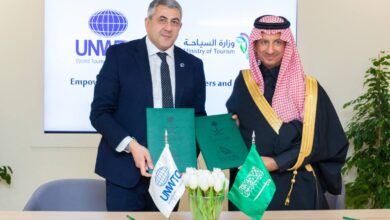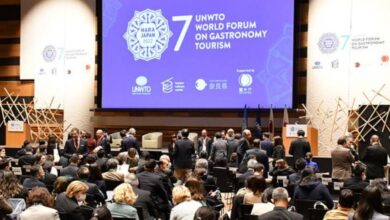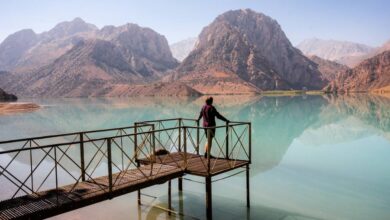Africa Tourism Leaders Identify Investments as Key to Sustainable Recovery

The African Members of the World Tourism Organization (UNWTO) have met in Cabo Verde to strengthen their cooperation and advance plans for recovery and sustainable growth.
The 64th meeting of the UNWTO Regional Commission for Africa (CAF) saw 23 countries represented on the island of Sal, with 21 Ministers of Tourism joining five Ambassadors for the high-level event. Opening the Commission meeting, the President of Cabo Verde Jorge Carlos Fonseca offered a warm welcome to UNWTO’s leadership and to all delegates. The President was joined by Cabo Verde’s Minister of Tourism and Transport, Carlos Jorge Duarte Santos, and Prime Minister Dr. Ulisses Correia e Silva in reaffirming support of the highest political level for tourism and recognition of the sector as a driver of recovery and sustainable development.
The continent is united in its determination to use the power of tourism to drive development and opportunity for all.
Chaired by Christine Kaseba Sata, Ambassador of Zambia to Spain and Permanent Representative to UNWTO, delegates addressed the biggest challenges standing in the way of the sector’s safe restart across the continent. Special emphasis was placed on the importance of speeding up vaccine rollouts across the continent, as well as addressing security issues that continue to have an impact on how global travellers perceive Africa as a safe tourism destination. Also on the agenda was the current level of connectivity between destinations, with improved air links the harmonization of travel protocols identified as an effective means for boosting regional tourism.
Tourism’s restart ‘essential’
Secretary-General Zurab Pololikashvili welcomed delegates to the Commission meeting, providing an overview of UNWTO’s work during the ongoing crisis and how this is driven by the stated priorities of its African Member States. He said. “The continent is united in its determination to use the power of tourism to drive development and opportunity for all. And with coordination and targeted investments, African tourism can finally fulfill its unique potential.”
Rebuilding trust in travel
In Cabo Verde, UNWTO Members were brought up-to-date on the development of the International Code for the Protection of Tourists, a landmark code aimed at helping restore confidence in travel. Members were also presented with an overview of the UNWTO General Programme of Work & Budget for the Period 2022-2023. Additionally, signalling a shared determination to keep moving forward even in challenging times, Members also held elections for key positions within UNWTO decision-making bodies ahead of the 24th General Assembly.
Building capacity
Running in parallel with the Commission meeting, UNWTO hosted capacity building workshops on innovation, digital marketing and investment These workshops were held ahead of the second edition of the UNWTO Global Tourism Investment Forum, opened by Prime Minister Dr. Ulisses Correia e Silva and featuring the participation of investors from Spain, Germany, Switzerland and the USA as well as public and private sector leaders from across Africa. Backing up the workshop on marketing, UNWTO also launched its new Brand Africa publication. Produced with key African Tourism Partners, the publication aims at helping destinations use effective branding to diversify and attract visitors.
Also in Cabo Verde, tourism leader celebrated the signing and approval of the UNWTO Declaration on the Future of Mobility and Sustainable Transportation, a commitment aimed at the better understanding of how investments can help make the sector greener while also encouraging greater cooperation between tourism authorities and transport providers. Concluding the Regional Commission meeting, UNWTO signed a Memorandum of Understanding (MoU) with the Government of Cabo Verde. The aim of the MoU is to enhance cooperation between UNWTO and the Ministry of Tourism to strengthen the country’s branding, boost tourism education initiatives, and support research into the socio-economic impact of the sustainable development of tourism across Cabo Verde.





